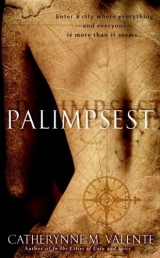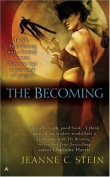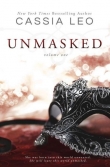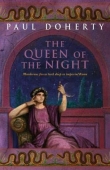
Текст книги "Palimpsest"
Автор книги: Catherynne M. Valente
Жанр:
Классическое фэнтези
сообщить о нарушении
Текущая страница: 1 (всего у книги 19 страниц)
PALIMPSEST
CATHERYNNE M. VALENTE


Contents
Title Page
Dedication
Epigraph
FRONTISPIECE: The Cradle of Becoming and Unbecoming
16th and Hieratica
ONE: Sic Transit Tokyo
TWO: Cities of the Bees
THREE: The Dreamlife of Lock and Key
FOUR: The Bookbinder’s Wife
Hieratica Street
PART I: Incipit Liber de Naturis Bestiarum
ONE: The Flayed Horse
125th and Peregrine
TWO: The Unhappy Rook
212th, Vituperation, Seraphim, and Alphabet
THREE: The Three of Tenements
413th and Zarzaparrilla
FOUR: The Archipelago
Parimutuel Circle
PART II: The Gate of Horn
ONE: Weepholes
Colophon Station
TWO: Protocols
Krasnozlataya and Corundum
THREE: Simple Declarations
Coriander and Ultramarine
FOUR: Peregrinations
Quiescence and Rapine
PART III: The Princess of Parallelograms
In Transit, Westbound: 8:17
ONE: The Rabbit in the Moon
Inamorata
TWO: Yes
Oblation and Legerdemain
THREE: Now. Now.
Seriatim and Deshabille
FOUR: Acts of Vesta
PART IV: Charon
In Transit, Westbound: 9:23
ONE: Eight Thousand Doors
121st and Hagiography
TWO: The Business of Human Purity
Kausia and Ossification
THREE: The Girl Behind Briars
Lassitude and Languor
FOUR: The Kingdom of Heaven
PART V: The Green Wind
In Transit, Westbound: 11:09
ONE: Wishes to the Trees
77th and Ambuscade
TWO: Things Which Are Full of Grace
Signe-de-Renvoi
THREE: A House of No Words
Signe-de-Renvoi
FOUR: The Favor of Vesta
VERSO: Young-Eyed Cherubins
ONE: The Flayed Horse
TWO: The Unhappy Rook
THREE: The Three of Tenements
FOUR: The Archipelago
Obsolescence and Unutterable
Acknowledgments
About the Author
Also by Catherynne M. Valente
Copyright
For Dmitri,
the map by which
I found this place
Look, how the floor of heaven Is thick inlaid with patines of bright gold: There’s not the smallest orb which thou behold’st But in his motion like an angel sings, Still quiring to the young-eyed cherubins; Such harmony is in immortal souls; But, whilst this muddy vesture of decay Doth grossly close it in, we cannot hear it.
–WILLIAM SHAKESPEARE
The Merchant of Venice
FRONTISPIECE:
THE CRADLE OF BECOMING AND UNBECOMING
16th and Hieratica
ON THE CORNER OF 16TH STREET AND HIERATICAa factory sings and sighs. Look: its thin spires flash green, and spit long loops of white flame into the night. Casimira owns this place, as did her father and her grandmother and probably her most distant progenitor. It is pleasant to imagine them, curling and uncurling their proboscis-fingers against machines of stick and bone. There has always been a Casimira, except when, occasionally, there is a Casimir.
Workers carry their lunches in clamshells. They wear extraordinary uniforms: white and green scales laid one over the other, clinging obscenely to the skin, glittering in the spirelight. They wear nothing else; every wrinkle and curve is visible. They dance into the factory, their serpentine bodies writhing a shift change, undulating under the punch clock with its cheerful metronomic chime. Their eyes are piscine, third eyelid half-drawn in drowsy pleasure as they side step and gambol and spin to the rhythm of the machines.
And what do they make in this factory? Why, the vermin of Palimpsest. There is a machine for stamping cockroaches with glistening green carapaces, their maker’s mark hidden cleverly under the left wing. There is a machine for shaping and pounding rats, soft gray fur stiff and shining when they are first released. There is another mold for squirrels, one for chipmunks and one for plain mice. There is a centrifuge for spiders, a lizard-pour, a delicate and ancient machine which turns out flies and mosquitoes by turn, so exquisite, so perfect that they seem to be made of nothing but copper wire, spun sugar, and light. There is a printing press for graffiti which spits out effervescent letters in scarlet, black, angry yellows, and the trademark green of Casimira. They fly from the high windows and flatten themselves against walls, trestles, train cars.
When the shift horn sounds at the factory, the long antler-trumpet passed down to Casimira by the one uncle in her line who defied tradition and became a humble hunter, setting the whole clan to a vociferous but well-fed consternation, a wave of life wafts from the service exit: moles and beetles and starlings and bats, ants and worms and moths and mantises. Each gleaming with its last coat of sealant, each quivering with near-invisible devices which whisper into their atavistic minds that their mistress loves them, that she thinks of them always, and longs to hold them to her breast.
In her office, Casimira closes her eyes and listens to the teeming masses as they whisper back to their mother. At the end of each day they tell her all they have learned of living.
It is necessary work. No family has been so often formally thanked by the city as hers.
_______
On the other side of the street: a fortune-teller’s shop. Palm fronds cross before the door. Inside are four red chairs with four lustral basins before them, filled with ink, swirling and black. Orlande lumbers in, a woman wrapped in ragged fox fur. Her head amid heaps of scarves is that of a frog, mottled green and bulbous-eyed. A licking pink tongue keeps its place in her wide mouth. Her webbed hands are full of cups: a swill of tea afloat with yellow leaves. She spills not a drop, and the tea is sweet, sweeter than anything.
She does not see individual clients.
Thus it is that four strangers sit in the red chairs, strip off their socks, plunge their feet into the ink-baths, and hold hands under an amphibian stare. This is the first act of anyone entering Palimpsest: Orlande will take your coats, sit you down, and make you family. She will fold you four together like Quartos. She will draw you each a card—look, for you it is the Broken Ship reversed, which signifies Perversion, a Long Journey without Enlightenment, Gout—and tie your hands together with red yarn. Wherever you go in Palimpsest, you are bound to these strangers who happened onto Orlande’s salon just when you did, and you will go nowhere, eat no capon or dormouse, drink no oversweet port that they do not also taste, and they will visit no whore that you do not also feel beneath you, and until that ink washes from your feet—which, given that Orlande is a creature of the marsh and no stranger to mud, will be some time—you cannot breathe but that they breathe also.
_______
There are four of them there now. Shall we peer in? Shall we disrupt their private sacraments? Are you and I such unrepentant voyeurs? I think we must be, else why have we come so close to the door of cassia, the windows of cracked glass? Let us peer; let us disrupt. It is our nature.
A girl with blue hair slumps slack against her chair. Her listless hand is tied to the wrist of a man with thinning blond hair. His unkept fingernails are thoroughly stained with violet-black ink, his attention sharp, his gaze fixed on Orlande, who is for him a miracle, a revelation—for her he is another customer and she will forget him easy and quick. Another woman, too, is there. A wimple of vague dark hair hangs over her shoulders; a bee sting blooms on her cheek like a kiss. Her fingers are entwined with a young, skinny thing, a bundle of keys at his belt, his trousers gray, workmanlike. He tries to catch the woman’s gaze—but he will fail. She is not for you, poor boy!
They are so young, young and sleepy and unknowing—unknowable, if you want to know the truth. Orlande’s muddy ink seeps up through the soles of their feet and the girl with blue hair yawns, a frank and unchecked gesture, like a newborn swaddled in her crèche.
ONE
SIC TRANSIT TOKYO
Sei pressed her cheek against the cold glass; strips of black mountains tore by under lantern-blue clouds beyond her wide window. She knew a man was watching her—the way men on trains always watched her. The train car rocked gently from side to side, hushing its charges like a worried mother. She chewed on the ends of her dark blue hair. A stupid childhood habit, but Sei couldn’t let it go. She let the wet curl fall back against her bare shoulder blades. She stroked the glass with her fingertips, shifted her hips against the white of the carriage—she was always moved to do this on the long-distance trains which crisscrossed the islands like corset stays. They were so pale and pure and unfathomably fast, like iridescent snakes hissing down to the sea. The Shinkansen was always pristine, always perfect, its aim always true.
Sei’s skin prickled as the man’s eyes slid over her back. She felt their cold black weight, shifting her shoulders to bear up under it. He would be watching the small of her back now, where her silver-black shirt fell away into a mess of carefully arranged silk ropes and tin chains. He would watch her angles under the strings, the crease of her legs beneath an immodest skirt, her lips moving against the glass. The little wet fog of her breath. She could almost tell what he looked like without turning her head: good black suit, a little too small, clutching his briefcase like a talisman, probably a little gray at the temples, no rings on his hands. They all looked like that.
Sei turned, her blue hair brushing her hipbones. Good black suit, a little too small, clutched briefcase, freckles of gray in the hair. No rings. He did not seem startled or doubled over with desire as they sometimes were. He was calm, his answering smile measured and almost sweet, like a photograph of a soldier lost in a long-ago war. Coolly, without taking his dark eyes from hers, he turned over his left palm and rested it on the creamy brown edge of his briefcase.
His hand was covered in a mark she first thought horrible—it snaked and snarled, black and swollen, where fortune-teller’s lines ought to have been. Like a spider it sent long web-spokes out from a circle in the center, shooting towards the pads of his fingers and burrowing into the tiny webbing of skin between them. She took a step forward, balancing expertly as the car sped on, and stared. It was something like a little map, drawn there by an inartful and savage hand. She could make out minuscule lettering along the inky corridors: street names she could hardly read. There seemed even to be an arcane compass near his thumb. As she leaned in, the man shut his fist.
“Sato Kenji,” he said, his voice neither high nor low, but cultured, clipped, quiet.
“Amaya Sei.”
He quirked an eyebrow briefly, slightly, in such a way that no one afterwards might be able to safely accuse him of having done it. Sei knew the look. Names are meaningless, plosives and breath, but those who liked the slope of her waist often made much of hers, which denoted purity, clarity—as though it had any more in the way of depth than others. They wondered, all of them, if she really was pure, as pure as her name announced her to be, all white banners and hymeneal grace.
She balanced one hand—many-ringed—on her hip and jerked her head in the manner of a fox snuffling the air for roasting things. “What’s wrong with your hand?”
“Nothing.” Kenji smiled in his long-ago way again. She quirked her own eyebrow, also blue, and delicately pierced with a frosted ring. He gestured for her to sit down and, though she knew better, they sat together for a moment, her body held tense and tight, ready to run, to cry out if need be. Their thighs touched—a gesture of intimacy she had never allowed herself with another passenger.
“I think you like trains rather too much, Sei.” The older man smelled of sandalwood and the peculiar thinscent of clean train cars.
“I’m not sure how that’s any of your business.”
“It isn’t, of course. I like them, too. I own a car, I have no need to ride the Shinkansen back and forth from Tokyo to Kyoto like some kind of Bedouin. It’s an expensive habit. But love is love, and love is compulsion. I must, and I do.”
He gently tapped the brass clasp on his briefcase and drew out a slender book, bound in black, its title embossed in silver:
A HISTORY OF TRAIN TRAVEL ON THE JAPANESE ISLES,
by Sato Kenji
Sei ran her hand over the cover as she had done the window glass. Her skin felt hot, too small for her bones. He opened the book—the pages were thick and expensive, so that the stamp of the press had almost made little valleys of the kanji, the cream-colored paper rising slightly above the ink. Kenji took her hand in his. His fingernails were very clean. He read to her with the low, vibratory tones of shared obsession.
A folktale current in Hokkaido just after the war and passed from conductor to conductor held that the floor of heaven is laced with silver train tracks, and the third rail is solid pearl. The trains that ran along them were fabulous even by the standards of the Shinkansen of today: carriages containing whole pine forests hung with golden lanterns, carriages full of rice terraces, carriages lined in red silk where the meal service brought soup, rice-balls, and a neat lump of opium with persimmon tea poured over it in the most delicate of cups. These trains sped past each other, utterly silent, carrying each a complement of ghosts who clutched the branches like leather handholds, and plucked the green rice to eat raw, and fell back insensate into the laps of women whose faces were painted red from brow to chin. They never stop, never slow, and only with great courage and grace could a spirit slowly progress from car to car, all the way to the conductor’s cabin, where all accounts cease, and no man knows what lies therein.
In Hokkaido, where the snow and ice are so white and pure that they glow blue, it is said that only the highest engineers of Japan Railways know the layout of the railroads on the floor of heaven. They say that those exalted engineers are working, slowly, generation by generation, to lay the tracks on earth so that they mirror exactly the tracks in heaven. When this is done, those marvelous carriages will fall from the sky, and we may know on earth, without paying the terrible fare of death, the gaze of the red women, the light of the forest lanterns, and the taste of persimmon tea.
Sato Kenji looked up from his book and into Sei’s eyes. She knew her face was flushed and red—she did not care. Her hands shook, her legs ached. She could not harness her breath. She did not need these trains for simple transport either, but longed for them, the cold rush of their passing as she stood on the wind-whipped platform, the slink of doors sliding closed behind her as the train accepted her as its own. That ache had begun long before Kenji had come on board. She felt their hands touching, their train-haunted hands. She took his book from his easy grip and held it to her, her heart beating against it, as if to read it through bone and flesh and leather, directly, needfully, ventricle pressed to page. A kind of knowledge passed between them—she would not return it, and he would not ask for it back.
Instead—and later she would wonder why she did it, why such a thing would have occurred to her, and will never be able to say—she took Sato Kenji by their linked hands and led him to the rickety, shivering place between the carriage cars, where the wind keened and crooned through the cracks in the grating and the white walls gave way to chrome. She kissed the gray of his hair. The space between them was thick, crackling, and though she told herself that it was unwise, a reckless thing, she moved through that wild, manic air and into him, his mouth, his skin.
He buried his face in her neck and, as though she weighed nothing, hefted her up against the carriage door, her blue hair flattening against the glass. Sei let out a small cry, like the whistle of an engine, and ground against him, shifting to let him enter her, his breath warm and even against her collarbone. His palm was pressed against her back, the black mark hot there, a sear, a brand. Sei clutched his book against his back and shut her eyes, feeling the train jerk and jolt against her. She felt enormous, cracked open, as though she had taken all of the great train into herself, as though the shuddering, scholarly thrusts of Sato Kenji were the loving gestures of her beloved Shinkansen, only guided by the man with the briefcase, guided up and out of him, guided into her, guided across the silver tracks of heaven.
TWO
CITIES OF THE BEES
There is a place on the interstate where the last black fingernails of Los Angeles fall away and the whole of the San Joaquin valley spreads out below the mountains, impossibly golden, checkered in green and wheat and strawberry fields and orange groves and infinitely long rows of radishes, where the land is shriven of all the sins of palm-bound, artifice-mad Southern California.
November knew that place, knew it so well that her bare foot on the gas pedal throbbed as it approached, as her little green car, heavy with produce, crested the last rise in the tangled highways of the Grapevine, and the light began to change, gratefully, from raw, livid brume to a gold like the blood of saints. Her throat caught as the great, soft fields unfolded below her, yawning, stretching all the way to San Francisco and further still, to the redwoods and Oregon, all the way up.
She had often imagined, as a girl, when her mother drove back and forth between the two great cities of the west, that I-5 went on simply forever, past Canada to the North Pole, where the center divider would be wrapped up in ice and the bridges cut out of arctic stone. Even now, charting the coast in her own right, she sometimes thought of ignoring the off-ramps and speeding up and up, to the cold stars and fox-haunted glaciers. But in the end, it was always the city of St. Francis that stopped her, and the rest of the world was lost behind a curtain of fog and gnarled red trees.
She could never escape the feeling of strange Spanish holiness that California bestowed—the cities named for saints, angels, benediction. The capital itself a sacrament. Like communion wafers she tasted the places on her tongue, the red roof tiles blood-vivid. Her own blood bisected the state, her mother, retired, warming her bones against the southern sea, her father, dead ten years, buried in the wet northern moss.
They met in the south, on a dock far out in the frothing turquoise Pacific, her young mother in rolled-up olive overalls with a great long knife in her hands, slaughtering a small blue shark she had caught by accident, trying for salmon. She was bloody to her elbows, her clothes a ruin, arterial spray across her cheek. Her father tied his little sailboat to the pier and she looked up at him over a carcass of silver and scarlet. They had both laughed.
Long before he died, November’s father was gone, up north, away from his wife and the sea. They could not bear each other, in the end, and perhaps a thing begun in blood and death and salt must end that way. They could not live with less than three mountain ranges to separate them. And between them they strung their daughter, and like a shining black bead counting out refutations of love, she slowly slid back and forth, back and forth. Finally, she had settled on her father’s country, and left the loud blues and golds of the south, unable to bear them herself.
She did not live in San Francisco, of course. She could not afford it. But she was drawn to it, rising up from the bay like the star of the sea, resting in a shell, all blue veils and promises of absolution. And at night it was a mass of light at the end of all those bridges, all those highways, looking east with huge black eyes.
November kept her father’s grave in Benicia, holding tenuously to the town’s boldly proclaimed blessings, and with the grave she tended sixteen hexagonal beehives. She had named all the queens. She kept for them pristine and intricate gardens to flavor their feet, and the honey in turn, and it was this golden science that occupied the small and guarded territory of her interior, even as she traveled the long, slow road out of the desert, her trunk full of sleeping yucca bulbs and infant jacarandas, their roots bound up in earth and linen. Even as she found herself turning from the last scrap of highway and into the interminable column of cars creeping across the great iron mass of the Bay Bridge.
How we are willing to wait, she thought, like a line of penitent adulterers at a white altar, to be allowed into the city.How we gather at this dull gray gate, knowing that the golden one is a lie. It is only there for show. The faithful know that God lives nowhere near gold. The tourists gawk at the orange cathedral, while the wise gather here, in the low and long, waiting patiently to hand over their coins and be permitted, for a moment, to look upon, but not touch, the mass of jewels and offerings in which San Francisco wallows.
November drove slowly in, and the water below her was black. She sought out Chinatown reflexively, found a shop cashiered by a spectacled biology student which sold star anise and scallions. She loved Chinatown at three in the morning—the reds and greens were muted, shadowed into black by the gaps between streetlamps. It was secret, lonely; every pink neon character seemed brave against the dark.
It took skill, a mapmaker’s skill, to find an open restaurant that would not turn a lone woman away, sure that her cup of coffee and wonton soup are hardly worth the effort of clearing a table. But on that night of all nights, November needed only a half an hour’s cartomancy before she found one, and the starchy benevolence of a plate full of steaming soup dumplings, braised pork, and peppered oysters.
The booth was hard, cracked vinyl the color of a Chevrolet interior left in the sun for twenty years. A television mounted in the ceiling corner flashed the news from Beijing without subtitles. Thus, her attention wandered and fell on a young woman in the next booth over sipping soup, her bright blue eyes belying Chinese features. The two women watched each other for a space, the only customers in an empty café, until finally, the other woman placed one delicate finger against her iris and deftly slid the contact lens aside like a curtain, quirking a smile as the wrinkled lens showed black beneath.
When November tries to remember this night a year from now, she will think the woman’s name was Xiaohui. She will be almost sure she can remember the ring of the name, falling into her ear like a little copper bell. She will remember that they shared dumplings, and that the woman was a Berkeley student, a historian who knew the names of every one of Mohammed’s grandchildren, and could recite the drifting census data of the ancient city of Karakorum, where the Khans raised tents of scarlet.
November had only her bees. They suddenly seemed paltry to her, poor and needy.
“Tell me about the cities of the bees,” Xiaohui said, her head cupped in one hand. “Tell me how big around the queen’s belly is. Tell me what their honey tastes like.”
November laughed, and the owner’s wife scowled over a tray of tomorrow’s cookies.
“I gave them orchids this year,” November said shyly, “orchids and belladonna and poppies. You can only alter honey a little, really—it tastes like itself, and only faintly of anything else, as though it remembers, with difficulty, white and purple petals, thick greenery, woody stems. Last year I kept them to a patch of red lilies and lavender. I like . . . I like to use brightly colored flowers, even though I suppose it doesn’t make any difference.”
Xiaohui arched her eyebrows, and November blushed. She reached into her purse, drew out a small jar with a lily stamped on the lid, and passed it over the plastic table like a spy relinquishing her secrets. The blue-eyed woman dipped her thumb into the murky honey and licked it quickly from her skin, closing her eyes, pressing her lips together, so as not to lose a drop. She took November’s hand in hers as she tasted, lacing their fingers.
The fortune cookies came, not wrapped in cellophane but fresh from the oven, sitting greasily on the check. They cracked into them, and Xiaohui nodded in the direction of the owner’s wife.
“My mother makes them every day,” she whispered. “She writes nonsense-fortunes, whatever she is thinking about when she’s baking: The fog is too thick today! Jiangxi Province had proper mist. I am allergic to milk,that sort of thing. People think she’s crazy, but they buy the cookies by the dozen.”
“What do you think?”
Xiaohui shrugged. “She’s my mother. Jiangxi Province didhave nicer weather.”
November glanced down at the scrap of white paper in her hand. It read:
Is not my daughter sweet?
But she was not, November found, when she kissed her outside the restaurant, under the washed-out constellations. She tasted like flour, flour and salt. Their breasts pressed tight together between two fog-dewed overcoats, the ache of it half-painful and half-pleasant. Xiaohui took her to a little apartment above a grocery store, and they fell together just inside the doorframe, awkwardly, like great beasts too eager for niceties. She bit November’s lower lip, and there was blood between them then.
“You need me,” said Xiaohui breathlessly, pulling November over her, sliding hands under her belt to claw and knead. “You need me.”
“Don’t you mean ‘I need you’?” whispered November in the girl’s ear.
“No,” she sighed, arching her back, tipping her chin up, making herself easy to kiss, easy to fall into, easy to devour. “You’ll see. You’ll see.”
_______
As Xiaohui drifted to sleep, one arm thrown over her now black and honest eyes, the other lying open and soft on her thin student’s sheets, November stared up into the dark, awake. This was not such a new thing in her ordered world—relationships required such vigilance, such attention. You had to hold them together by force of will, and other people took up so much space, demanded so much time. It was exhausting. This was better, the occasional excursion into Chinatown, into the city of St. Francis, who after all watched over wild and wayward animals. This was better, but she slept fitfully afterward.
November stroked the inside of Xiaohui’s thigh gently, a mark there, terribly stark, like a tattoo: a spidery network of blue-black lines, intersecting each other, intersecting her pores, turning at sharp angles, rounding out into clear and unbroken skin. It looked like her veins had darkened and hardened, organized themselves into something more than veins, determined to escape the borders of their mistress’s flesh. In her sleep, Xiaohui murmured against her lover’s neck, something about the grain yields of the farms in fourteenth-century Avignon.
“It looks like a streetmap,” November whispered, pressing her hand tenderly against it, so that Xiaohui’s pale skin seemed whole and unbroken.
THREE
THE DREAMLIFE OF LOCK AND KEY
There was nothing in Oleg’s apartment that was not locked away, safer than treasure, safer than a heart. Even the thin light from a tall and dusty lamp, tinged brown at the edges like an old apple, was bound and locked, a key turned, bolts slung firm. It could not leave this room, it would shine only here, for Oleg, and only for him.
Oleg was a locksmith. He had always thought the term overwrought, implying that he spent his days torturously pouring molten brass into molds banging out locks on some infernal anvil. It implied a burlier, more archaic man than he. Anyway, most of his public business was in keys, not locks. His private business was collection.
Keys did not really fascinate him, though he collected them as well, matching them carefully, not to the lock that was made for them, modern to modern, brass to brass, keycard to slot, as a common locksmith might, but to the ones he felt they yearned for, deep in their pressed metal hearts. He possessed a rusted iron key with an ornate lion’s grimace at its head, slung alongside a gleaming hotel’s card-slot lock, its red and green lights dead. He had laid an everyday steel housekey against the rarest of locks, real gold, with lilies raised up on its surface, a complex system of bolts and tumblers concealed within. Only Oleg had heard their cries for each other. Only Oleg knew their silent grief that they could not join.
He remembered Novgorod only vaguely, where he was born, where he had been a boy, briefly. It did not seem to Oleg that he could have been a boy long. Surely he would remember more of it, if it had been an important time. He had only images, as though he had once gone on vacation there—snapshots, postcards, souvenirs. He was born, properly, when they left, wafting like tea-steam through Vienna, Naples, and into New York. They had gone silently from those places, trying hard not to disturb the air. In his memory he searched for a single word his mother might have said to him on the trains and ships between the two mismatched slabs of his life. He could only summon her cold white hands and the aquamarine that hung from her neck on a golden chain, clear and hard, swinging back and forth to the rhythm of the train. Snapshots. Souvenirs.
Yet Novgorod hung in his heart, an alien thing, hidden as a key. He could recall dimly the quicksilver bleed of the Volkhov River, pale cupolas under the snow like great garlic bulbs. But those churches were all nameless to him—he could not pluck the saints who owned them from his forgetful heart, and for this sin he did guilty penance among his locks. Everything was white and gray in that Novgorod-of-the-mind, even the violinists on Orlovskaya Street, men without blood, playing fiddles of ash. This white pendulum swung within him, even as he bent with his tools to locks more beautiful and complicated than memory.
He lived in New York, but the New York of Oleg Sadakov was not the New York of others, and he alone ministered this secret place, stamped onto the back of the city like a maker’s mark. He crept and crawled through it, listening, for Oleg could listen very well, better than rabbits or horses or safecrackers.
The trouble was, New York was famous. Oleg had even seen it in Novgorod—a city so often photographed, filmed, recorded that there was truly no one who did not know its name, its outline, the shape of its body. So many books had been written about it, so many people had loved it and lived in it until their clothes smelled of its musk, so many had eaten its food and drunk its water and extolled its virtues like a gospel of the new world, that it had, with infinitesimal slowness, ceased to be, melted into vapor and dust. What rose now on the island of Manhattan was no more than the silver-white echo of all those millions of words expended on its vanity, the afterimage of all those endless photographs and movies which broadcast it to anyone who might live ignorant of its majesty. A monster, a fairy-tale mirror, glittering but false, a doppelgänger, a golem with New York Cityengraved roughly on its forehead.








